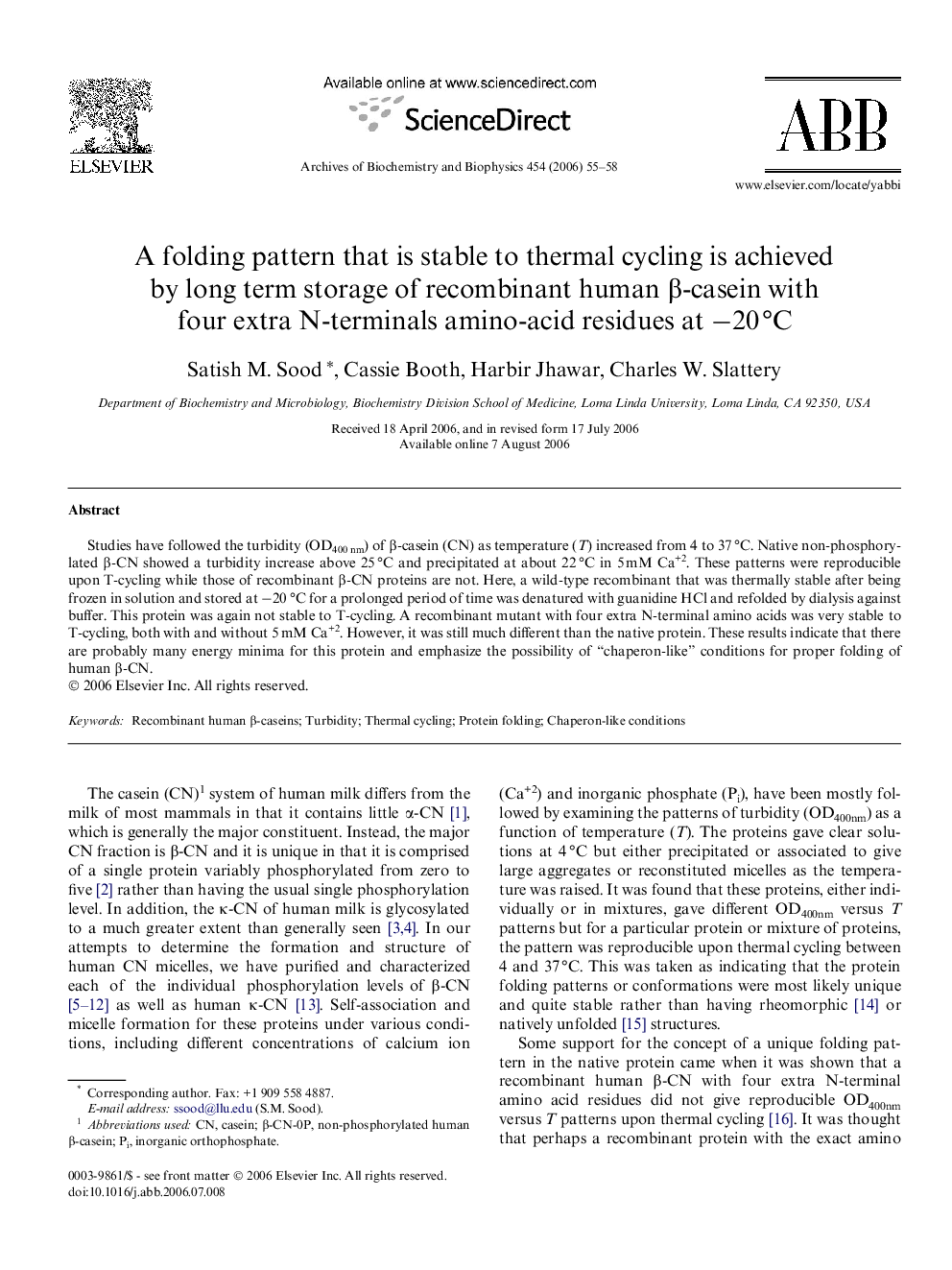| Article ID | Journal | Published Year | Pages | File Type |
|---|---|---|---|---|
| 1927259 | Archives of Biochemistry and Biophysics | 2006 | 4 Pages |
Abstract
Studies have followed the turbidity (OD400 nm) of β-casein (CN) as temperature (T) increased from 4 to 37 °C. Native non-phosphorylated β-CN showed a turbidity increase above 25 °C and precipitated at about 22 °C in 5 mM Ca+2. These patterns were reproducible upon T-cycling while those of recombinant β-CN proteins are not. Here, a wild-type recombinant that was thermally stable after being frozen in solution and stored at â20 °C for a prolonged period of time was denatured with guanidine HCl and refolded by dialysis against buffer. This protein was again not stable to T-cycling. A recombinant mutant with four extra N-terminal amino acids was very stable to T-cycling, both with and without 5 mM Ca+2. However, it was still much different than the native protein. These results indicate that there are probably many energy minima for this protein and emphasize the possibility of “chaperon-like” conditions for proper folding of human β-CN.
Related Topics
Life Sciences
Biochemistry, Genetics and Molecular Biology
Biochemistry
Authors
Satish M. Sood, Cassie Booth, Harbir Jhawar, Charles W. Slattery,
